
THIS MONTH’S TOPIC:
LINKING SOURCE WATER PROTECTION AND EMERGENCY PREPAREDNESS AND RESPONSE
TUESDAY, JUNE 6TH, 2017
2PM-3PM EDT
FEATURING:
Alan Roberson, Executive Director, Association of State Drinking Water Administrators (ASDWA)
Greg Prelewicz, Fairfax Water
Steve Beiber, Metropolitan Washington Council of Governments (MWCOG)
This webinar will leverage the case study from the spill on the Potomac River (in Virginia) in November 2016 to provide recommendations for a variety of participants including water utilities, and federal, state, and local governments. During the webinar, participants will:
- Learn how to link source water protection and emergency preparedness and response
- Learn what worked and what didn’t work during/after the spill
- How lessons learned can improve planning for emergency preparedness and response
The source water for most of Metropolitan Washington DC was put at risk by a spill on the Potomac River in late 2016. The water systems responded aggressively to this spill in order to provide continuity of operations but the emergency response by other governmental entities was not optimal from the water systems’ perspective. Past source water mapping, as well ongoing source water monitoring, provided useful and timely data that was used in decision-making by the impacted water systems. Additional emergency preparedness work has been started as a result of the lessons learned from the response to this spill.
Alan Roberson (Source Water Collaborative Steering Committee Co-Chair) will provide some opening remarks, and Greg Prelewicz (Fairfax Water) and Steve Beiber (MWCOG) will provide a presentation about the Potomac River spill incident and lessons learned, and answer audience questions.
Save your spot today!
This is the sixth webinar in the Source Water Collaborative Learning Exchange Webinar Series. The Learning Exchange is an information sharing platform for source water protection advocates to discuss current challenges, share success stories, and transfer knowledge to bolster source water protection efforts across the country.
After registering you will receive a confirmation email containing information about joining the webinar.
SPEAKER PROFILES
ALAN ROBERSON is the Executive Director of the Association of State Drinking Water Administrators (ASDWA). ASDWA’s members (the state drinking water agencies) are co- regulators with the Environmental Protection Agency (EPA). Mr. Roberson has over 27 years of experience in the development of drinking water policy and federal drinking water regulations. He and his staff work closely with EPA and the state and territorial drinking water agencies in the development and implementation of federal drinking water regulations. Mr. Roberson coordinates with his members to establish the policy direction on all federal water regulatory and security and preparedness issues, as well as manage the finances and strategic planning for ASDWA.
GREG PRELEWICZ serves as Manager of Planning for Fairfax Water, Virginia’s largest water utility, where he oversees a staff of employees in system planning and development, source water planning and protection, site plan review, and GIS and mapping services. Greg has 20 years of experience in various water resources, environmental, and civil engineering areas, having worked the past 14 years at Fairfax Water. Greg arrived at Fairfax Water during the planning and discussion stage of the Potomac Drinking Water Source Protection Partnership (DWSPP) formation. He has been an active participant in the Potomac DWSPP and in Fairfax Water’s other source water protection activities since 2003.
STEVE BEIBER has over 25 years of experience in water quality management, environmental regulation, critical infrastructure protection, and public policy. Presently, he is responsible for managing COG’s regional Anacostia Restoration Partnership, water security programs, energy security programs, critical infrastructure protection, drought management and response, urban stream restoration, green infrastructure, and other related environmental programs for local governments and utilities in the Washington, DC area. Previously Mr. Bieber was Chief of Watershed Planning and Outreach for the Maryland Department of the Environment. Mr. Bieber also has extensive experience working with international groups on watershed management and water security issues. Sanitation Commission.

 Learning Exchange Webinar Series
Learning Exchange Webinar Series
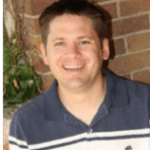 Ryan Chapman is the Water Quality Assessment Section Supervisor with the Nebraska Department of Environmental Quality. He has been with the Department since 2009 and served as the Wellhead Protection Program Coordinator for 5 years. He also works with several of the Section 319 Non-Point Source grants that the Department awards annually. Ryan holds a Bachelor’s degree in Agricultural Sciences and Natural Resources from the University of Nebraska Lincoln, and Bachelor’s and Master’s degrees from Iowa State University.
Ryan Chapman is the Water Quality Assessment Section Supervisor with the Nebraska Department of Environmental Quality. He has been with the Department since 2009 and served as the Wellhead Protection Program Coordinator for 5 years. He also works with several of the Section 319 Non-Point Source grants that the Department awards annually. Ryan holds a Bachelor’s degree in Agricultural Sciences and Natural Resources from the University of Nebraska Lincoln, and Bachelor’s and Master’s degrees from Iowa State University.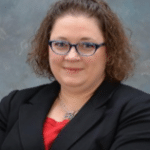 Heather Duncan is the EPA Region 7 liaison to Nebraska’s nonpoint source/319 program. Heather has been with EPA Region 7 since 2006. Prior to working in water quality programs, Heather spent time with EPA Region 7’s pesticides program and was the co-chair of Region 7’s Agriculture Team. She’s an Iowa farm girl by upbringing and a graduate of Iowa State University with a Bachelor of Science degree in Public Service and Administration in Agriculture – Agricultural Meteorology.
Heather Duncan is the EPA Region 7 liaison to Nebraska’s nonpoint source/319 program. Heather has been with EPA Region 7 since 2006. Prior to working in water quality programs, Heather spent time with EPA Region 7’s pesticides program and was the co-chair of Region 7’s Agriculture Team. She’s an Iowa farm girl by upbringing and a graduate of Iowa State University with a Bachelor of Science degree in Public Service and Administration in Agriculture – Agricultural Meteorology.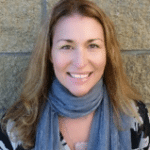 Kim Borgzinner is the Source Water Coordinator for the Nevada Division of Environmental Protection. She has been managing the State’s Integrated Source Water Protection Program for the past 10 years and has worked successfully with many communities in Nevada to develop and implement comprehensive countywide source water protection plans. Prior to working for NDEP, Kim worked in private consulting on projects related to public water system capacity building. She holds a Bachelor of Science degree in Civil Engineering from the University of Nevada Reno.
Kim Borgzinner is the Source Water Coordinator for the Nevada Division of Environmental Protection. She has been managing the State’s Integrated Source Water Protection Program for the past 10 years and has worked successfully with many communities in Nevada to develop and implement comprehensive countywide source water protection plans. Prior to working for NDEP, Kim worked in private consulting on projects related to public water system capacity building. She holds a Bachelor of Science degree in Civil Engineering from the University of Nevada Reno. Birgit Henson is the Non-point Source Branch Supervisor managing the Clean Water Act 319 Program at the Nevada Division of Environmental Protection. She has over twenty years of experience in the water quality field. Birgit previously worked for Nevada’s Underground Injection Control Program where she was responsible for permitting discharges to groundwater, and also worked for the Tahoe Regional Planning Agency and Basin Management Unit. She has a Bachelor’s of Science degree in Natural Resource Management and Engineering from the University of Connecticut and is a Certified Public Manager.
Birgit Henson is the Non-point Source Branch Supervisor managing the Clean Water Act 319 Program at the Nevada Division of Environmental Protection. She has over twenty years of experience in the water quality field. Birgit previously worked for Nevada’s Underground Injection Control Program where she was responsible for permitting discharges to groundwater, and also worked for the Tahoe Regional Planning Agency and Basin Management Unit. She has a Bachelor’s of Science degree in Natural Resource Management and Engineering from the University of Connecticut and is a Certified Public Manager.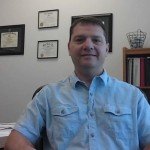 Jeff Wells is the Field Director for the Office of Drinking Water in the Virginia Department of Health, Danville Field Office. He has over 24 years of experience with environmental compliance and has worked with VDH in various capacities for the last 14 years. His Office covers a 22-county region in south central Virginia and regulates over 450 waterworks. Services provided include inspections, technical services, monitoring compliance, enforcement and engineering services for the regulated systems. Jeff is a registered Professional Engineer and holds a BS in Civil Engineering from North Carolina State University and a MS in Civil Engineering from the University of North Carolina – Charlotte.
Jeff Wells is the Field Director for the Office of Drinking Water in the Virginia Department of Health, Danville Field Office. He has over 24 years of experience with environmental compliance and has worked with VDH in various capacities for the last 14 years. His Office covers a 22-county region in south central Virginia and regulates over 450 waterworks. Services provided include inspections, technical services, monitoring compliance, enforcement and engineering services for the regulated systems. Jeff is a registered Professional Engineer and holds a BS in Civil Engineering from North Carolina State University and a MS in Civil Engineering from the University of North Carolina – Charlotte.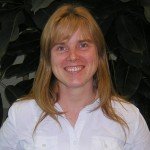 Corina Hayes is the Source Water Protection Program Manager in the Office of Drinking Water for the Washington State Department of Health. She provides regulatory oversite of the source water protection program through training and technical assistance. She also provides utilities with the necessary assistance to address source water protection issues, for both water quality and quantity, and provides funding for protection activities. Prior to her current position, Corina worked as a regional planner for the Office of Drinking Water and a planner for Thurston County. Corina received a Bachelor of Science in Natural Resources from Oregon State University.
Corina Hayes is the Source Water Protection Program Manager in the Office of Drinking Water for the Washington State Department of Health. She provides regulatory oversite of the source water protection program through training and technical assistance. She also provides utilities with the necessary assistance to address source water protection issues, for both water quality and quantity, and provides funding for protection activities. Prior to her current position, Corina worked as a regional planner for the Office of Drinking Water and a planner for Thurston County. Corina received a Bachelor of Science in Natural Resources from Oregon State University.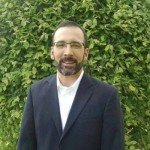 Bill Trueman is the Environmental Services Coordinator for the Skagit Public Utilities District. He is involved with regulatory compliance and permitting, source water protection, and water rights. Recent projects have included a comprehensive updating of the District’s Watershed Management Plan and upgrades to surface water diversion facilities. Prior to joining Skagit PUD, Bill worked in industrial forest management and with civil construction contractors. Bill received a Bachelor of Science in Forest Resources from the University of Washington and enjoys the outdoors with his family and their horses.
Bill Trueman is the Environmental Services Coordinator for the Skagit Public Utilities District. He is involved with regulatory compliance and permitting, source water protection, and water rights. Recent projects have included a comprehensive updating of the District’s Watershed Management Plan and upgrades to surface water diversion facilities. Prior to joining Skagit PUD, Bill worked in industrial forest management and with civil construction contractors. Bill received a Bachelor of Science in Forest Resources from the University of Washington and enjoys the outdoors with his family and their horses.
